Collaboration Between the Faculty of Marine and Fisheries Udayana and PT. Seasix Energy for Research and Seaweed Cultivation
On February 20, 2025, The Faculty of Marine Science and Fisheries, Udayana University, continues to demonstrate its commitment to fostering strategic partnerships with industry to strengthen the synergy between academia and practitioners in the marine and fisheries sector. In this effort, the Faculty of Marine Science and Fisheries has officially signed a Cooperation Agreement (PKS) with PT. Seasix Energy, a national company engaged in the development of seaweed aquaculture, as part of an initiative to advance scientific knowledge and enhance student competencies through the Merdeka Belajar Kampus Merdeka (MBKM) Program.The signing ceremony took place at Gedung Samudra, Faculty of Marine Science and Fisheries, Udayana University, and was attended by the faculty’s leadership, including Dean Prof. Dr. Ir. I Wayan Nuarsa, M.Si, along with lecturers and academic staff. Representing PT. Seasix Energy, Mahima Jaini, the company’s Manager, was present along with two colleagues to provide an overview of the scope and objectives of the collaboration.
In his remarks, Prof. Dr. Ir. I Wayan Nuarsa, M.Si expressed great appreciation and high hopes for this partnership. He emphasized that collaboration between universities and industries is crucial in enhancing the relevance of higher education to the demands of the workforce. This program is expected to provide students with hands-on experience in the field, particularly in the seaweed aquaculture industry, which currently holds great potential for development.
Meanwhile, Mahima Jaini explained that PT. Seasix Energy is committed to developing the seaweed aquaculture sector sustainably by integrating modern technology and research-based approaches. One of the key aspects of this partnership is to provide students from the Faculty of Marine Science and Fisheries with opportunities to engage in research and internships as part of the Merdeka Belajar Kampus Merdeka (MBKM) Program. This initiative allows students to gain practical experience in the field, broadening their understanding of aquaculture and marine resource management.
Students participating in the program will be placed at PT. Seasix Energy’s aquaculture sites in Nusa Dua, Bali, and Lombok. This experience will enable them to observe and contribute directly to the seaweed farming process, from planning and cultivation techniques to environmental management and product marketing. The program aims not only to enhance students' technical skills but also to expand their professional networks and provide them with insights into the challenges and opportunities within the fisheries and marine sector.
Additionally, this partnership opens opportunities for joint research between faculty members of the Faculty of Marine Science and Fisheries and experts from PT. Seasix Energy in various relevant fields, including innovations in aquaculture technology, production efficiency, and mitigation strategies for environmental changes that may impact the seaweed aquaculture industry.
The Dean of the Faculty of Marine Science and Fisheries further stated that this agreement is a foundational step toward broader collaborations in the future. "We hope that this partnership will foster innovations and new discoveries in the marine and fisheries sector, benefiting students, academics, industry players, and the wider community. The Faculty of Marine Science and Fisheries at Udayana University remains committed to forging strategic partnerships with the industry to support the advancement of Indonesia’s fisheries sector," he stated.
With the signing of this Cooperation Agreement, the Faculty of Marine Science and Fisheries, Udayana University, further solidifies its position as an educational institution that excels not only in academic achievements but also in building productive relationships with industry and businesses. This agreement reflects a concrete step toward supporting the Merdeka Belajar Kampus Merdeka vision, which aims to produce graduates who are work-ready and capable of making significant contributions to the development of the marine and fisheries sector in Indonesia.
This collaboration is expected to generate long-term benefits and serve as an inspiration for other higher education institutions to actively engage with industries in creating a more dynamic and relevant educational ecosystem that aligns with the evolving demands of the modern workforce and global industry trends.
In his remarks, Prof. Dr. Ir. I Wayan Nuarsa, M.Si expressed great appreciation and high hopes for this partnership. He emphasized that collaboration between universities and industries is crucial in enhancing the relevance of higher education to the demands of the workforce. This program is expected to provide students with hands-on experience in the field, particularly in the seaweed aquaculture industry, which currently holds great potential for development.
Meanwhile, Mahima Jaini explained that PT. Seasix Energy is committed to developing the seaweed aquaculture sector sustainably by integrating modern technology and research-based approaches. One of the key aspects of this partnership is to provide students from the Faculty of Marine Science and Fisheries with opportunities to engage in research and internships as part of the Merdeka Belajar Kampus Merdeka (MBKM) Program. This initiative allows students to gain practical experience in the field, broadening their understanding of aquaculture and marine resource management.
Students participating in the program will be placed at PT. Seasix Energy’s aquaculture sites in Nusa Dua, Bali, and Lombok. This experience will enable them to observe and contribute directly to the seaweed farming process, from planning and cultivation techniques to environmental management and product marketing. The program aims not only to enhance students' technical skills but also to expand their professional networks and provide them with insights into the challenges and opportunities within the fisheries and marine sector.
Additionally, this partnership opens opportunities for joint research between faculty members of the Faculty of Marine Science and Fisheries and experts from PT. Seasix Energy in various relevant fields, including innovations in aquaculture technology, production efficiency, and mitigation strategies for environmental changes that may impact the seaweed aquaculture industry.
The Dean of the Faculty of Marine Science and Fisheries further stated that this agreement is a foundational step toward broader collaborations in the future. "We hope that this partnership will foster innovations and new discoveries in the marine and fisheries sector, benefiting students, academics, industry players, and the wider community. The Faculty of Marine Science and Fisheries at Udayana University remains committed to forging strategic partnerships with the industry to support the advancement of Indonesia’s fisheries sector," he stated.
With the signing of this Cooperation Agreement, the Faculty of Marine Science and Fisheries, Udayana University, further solidifies its position as an educational institution that excels not only in academic achievements but also in building productive relationships with industry and businesses. This agreement reflects a concrete step toward supporting the Merdeka Belajar Kampus Merdeka vision, which aims to produce graduates who are work-ready and capable of making significant contributions to the development of the marine and fisheries sector in Indonesia.
This collaboration is expected to generate long-term benefits and serve as an inspiration for other higher education institutions to actively engage with industries in creating a more dynamic and relevant educational ecosystem that aligns with the evolving demands of the modern workforce and global industry trends.
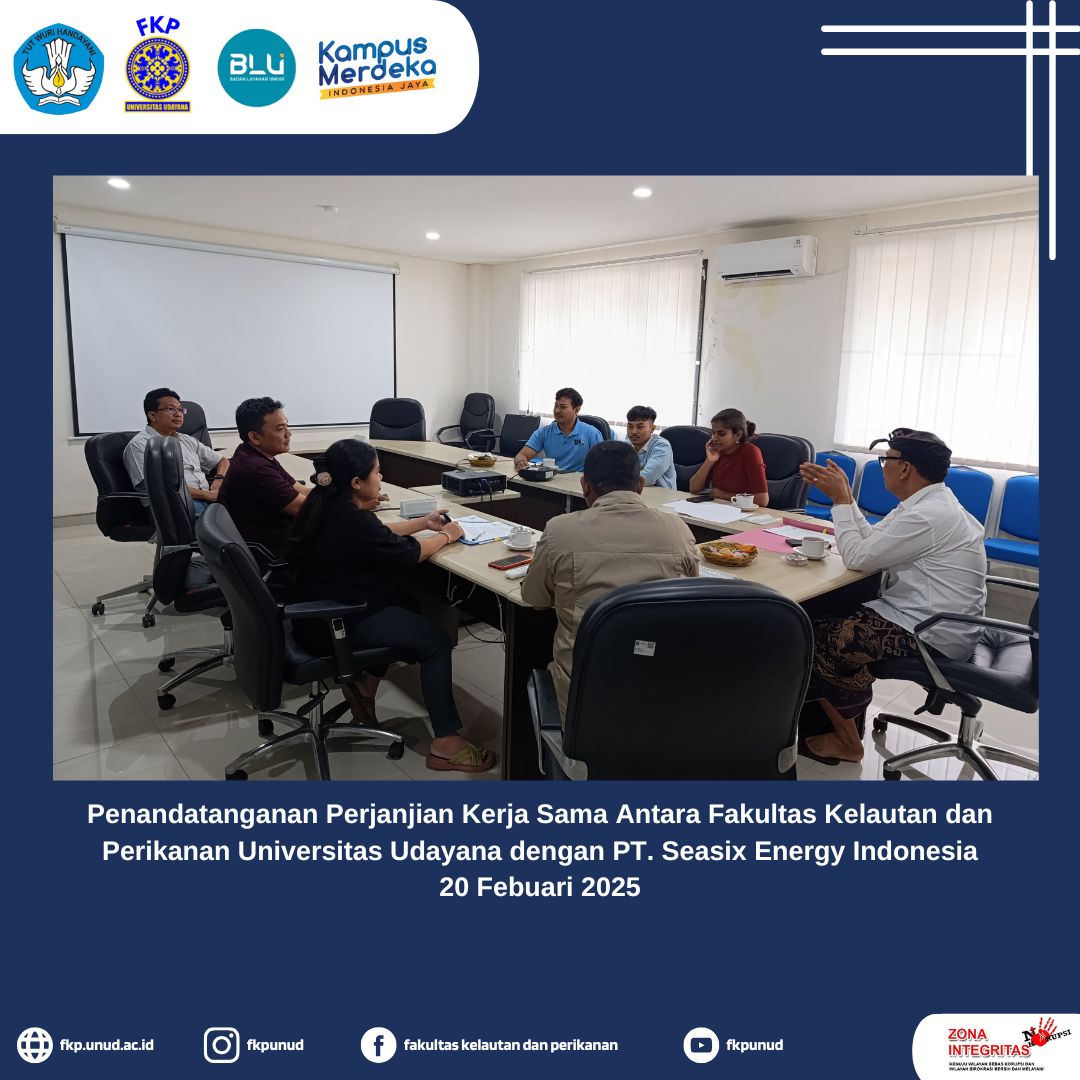
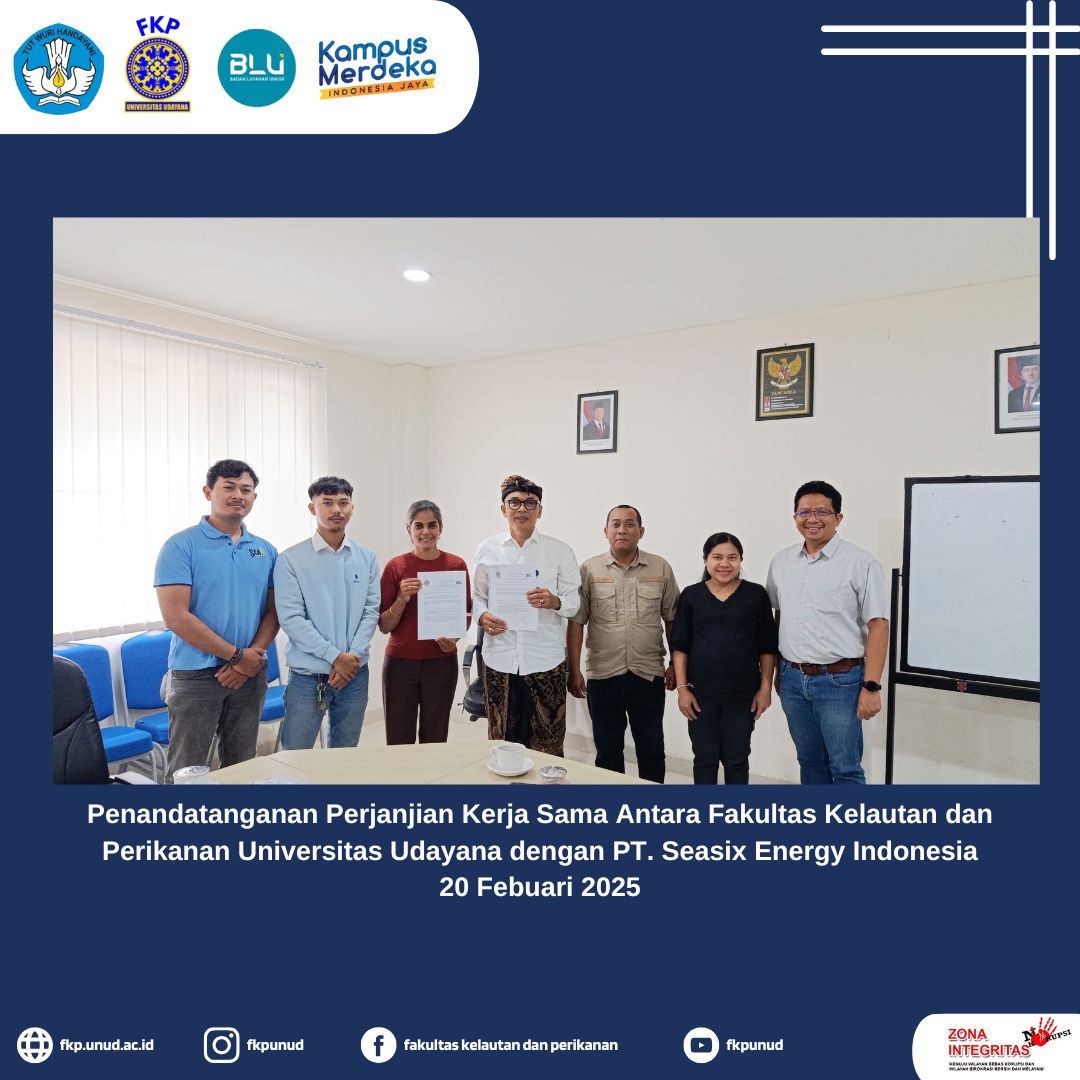
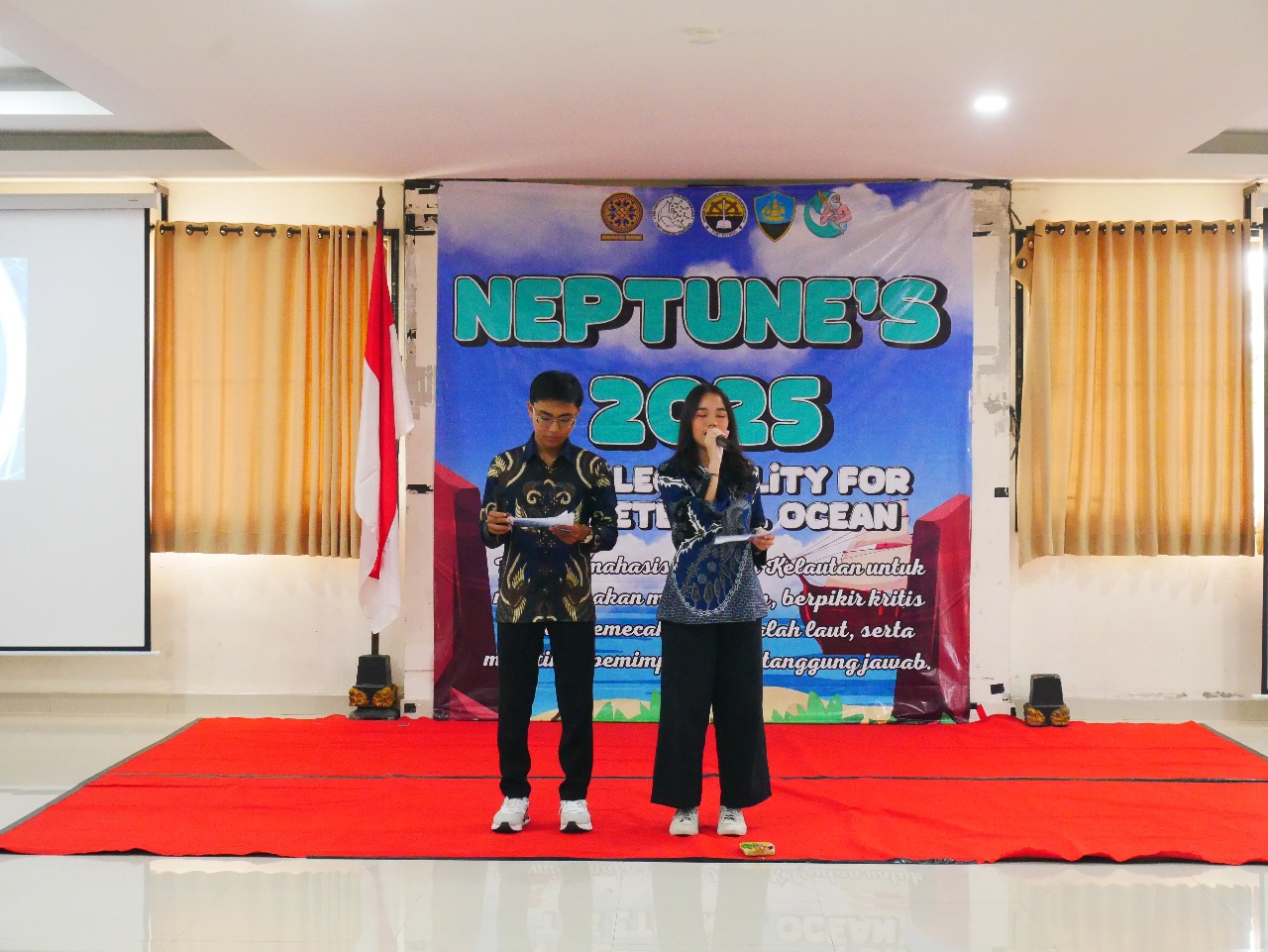
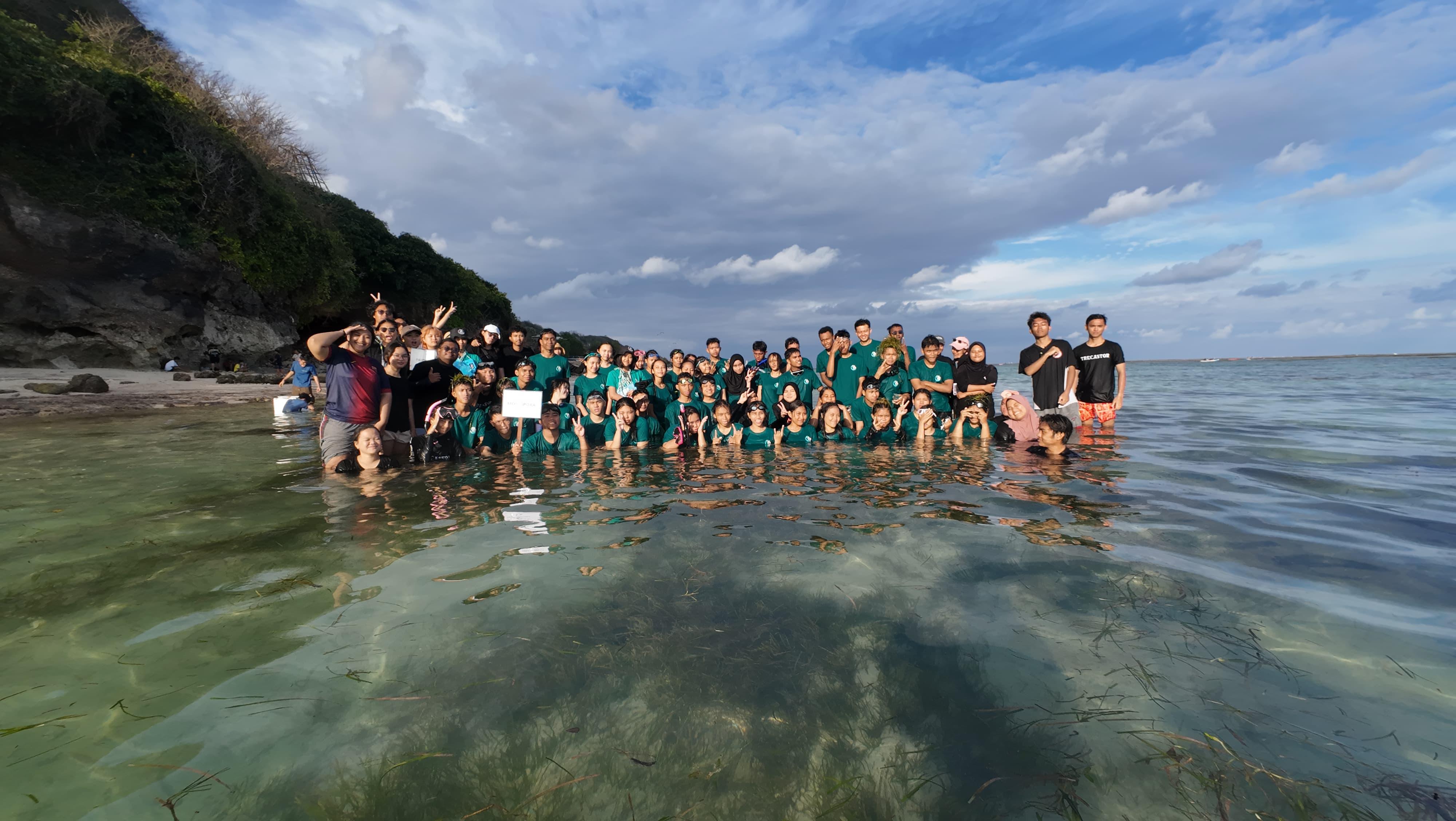
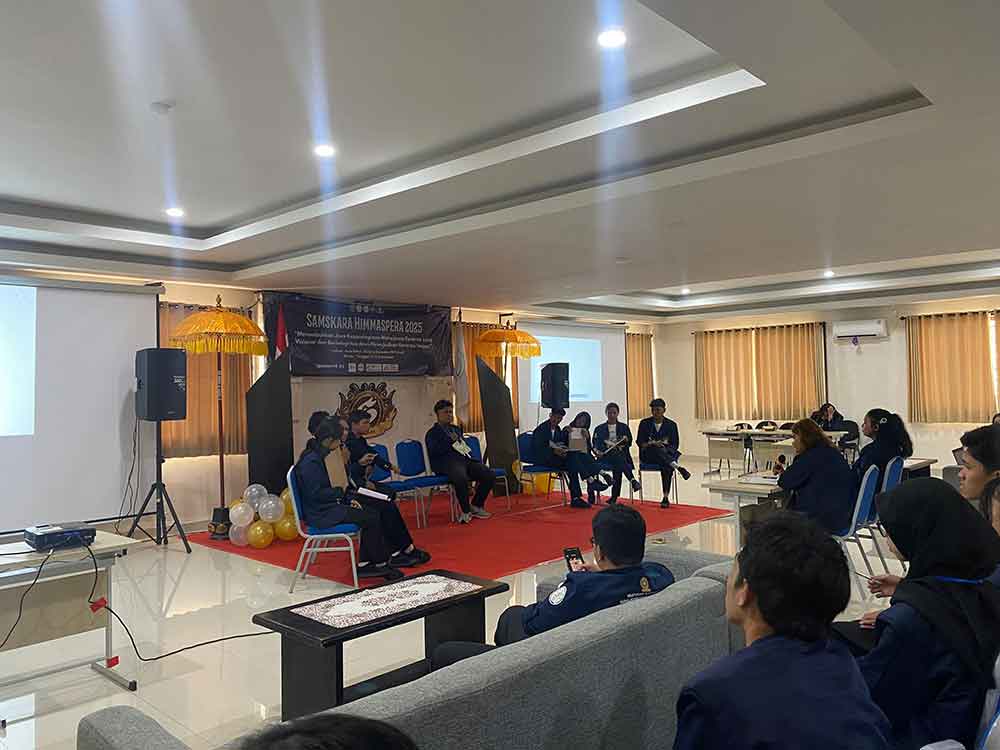
UDAYANA UNIVERSITY